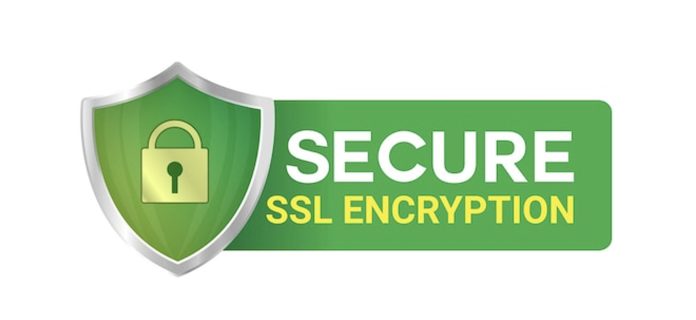When it comes to security for your website, choosing the right SSL certificate can be a tricky decision. Free SSL certificates are becoming increasingly popular, but are they worth the cost savings?
On the other hand, paid SSL certificates can provide superior protection, but at a steep price.
In this article, we will explore the differences between paid and free SSL certificates, and help you decide which one is right for you. We will look at the features of each type of certificate and the cost associated with them, as well as how to choose the best one for your needs.
Ultimately, you will be able to make an informed decision on which type of SSL certificate is right for you and your website. To get started, take a look at ssl-marketplace.co.uk. They have a wide selection of SSL certificates, along with expert advice to help you choose the right one.
Differences Between Paid and Free SSL Certificates
The first and most obvious difference between paid and free SSL certificates is the price – paid SSL certificates are significantly more expensive than free SSL certificates. You will likely have to budget between $50 and $300 depending on the type of certificate you choose.
With paid SSL certificates, you will also have to pay an annual renewal fee. In addition to cost, paid and free SSL certificates also differ in terms of encryption strength, service provider, and client support.
Let’s take a closer look at each of these differences. The most important difference is the encryption strength of each type of SSL certificate.
Paid SSL certificates provide greater encryption strength than free SSL certificates, making them more secure. They are also issued by recognized certificate authorities and have a valid signature and digital fingerprint.
Free SSL certificates are issued via Let’s Encrypt; a free Certificate Authority (CA) service operated by the Internet Security Research Group (ISRG).
While these certificates are more than adequate for basic website security needs, they are less secure than paid SSL certificates. Free SSL certificates are also issued using a much less rigorous verification process than paid SSL certificates, resulting in a less trusted certificate.
Another difference between paid and free SSL certificates is the service provider. Paid SSL certificates are issued by trusted certificate authorities that operate in the commercial marketplace. These providers offer SSL and other types of security services for businesses of all sizes. Additionally, implementing SSL monitoring ensures that your website’s security certificate remains valid and up to date, providing continuous protection for your customers.
In many cases, paid SSL certificates can also be used to create HTTPS and FTPS connections. Free SSL certificates are issued by Let’s Encrypt and other free CA services. These certificate authorities operate in the non-commercial open-source marketplace. While they are still trusted by most browsers and devices, free CA services are not as well-known as commercial certificate authorities and provide fewer services.
Benefits of Paid SSL Certificates
Paid SSL certificates provide superior protection compared to free SSL certificates. They are issued by trusted certificate authorities, have high encryption strength, and have a verified identity.
These certificates are a great option if you are looking for a high level of security for your website. Paid SSL certificates are trusted by all major browsers and devices and can be used to create HTTPS and FTPS connections. With paid SSL certificates, you can also purchase multiple domain names for each certificate, making them a great option for e-commerce websites.
Other benefits of paid SSL certificates include the following:
- Trusted by all major browsers: Paid SSL certificates are trusted by all major browsers, including Google Chrome, Mozilla Firefox, and Internet Explorer. They are also trusted by all major mobile browsers and devices, including iPhones, Android devices, and iPads.
- More Secure: Paid SSL certificates provide a higher level of encryption strength than free SSL certificates. This makes them more secure and provides an added level of protection for your website.
- Issued by Trusted Certificate Authorities: Paid SSL certificates are issued by well-known commercial certificate authorities. This means your website will be trusted and verified by browsers and devices, while providing exceptional protection against fraud and identity theft.
- Allows HTTPS and FTPS Connections: Paid SSL certificates can be used to create HTTPS and FTPS connections, protecting your website’s data and helping to prevent man-in-the-middle attacks.
Benefits of Free SSL Certificates
Free SSL certificates provide basic protection for websites and should be used for low-risk purposes. Since they are issued by a free CA service, they are less secure than paid SSL certificates.
They are also less trusted by browsers and devices and cannot be used to create HTTPS or FTPS connections. Despite their lack of security, free SSL certificates can be useful when you have a low-risk website, such as a blog or a forum website.
Some of the benefits of free SSL certificates include the following:
- No Upfront Cost: While paid SSL certificates cost money upfront, free SSL certificates are free and don’t require a payment.
- No Long-Term Contracts: Many paid SSL certificates require long-term contracts, often lasting one or two years. With free SSL certificates, you can avoid these long-term contracts and end the SSL certificate anytime without penalty.
- Easy to Install: While paid SSL certificates are almost always installed by a professional ISP, free SSL certificates can be installed by anyone.
Cost Comparison of Paid and Free SSL Certificates
The cost of paid SSL certificates can vary, depending on the type of certificate and the provider you choose. While many providers offer basic SSL certificates for a low price, often less than $50, more expensive solutions are also available.
For instance, a Wildcard SSL certificate will secure all subdomains and a single domain name, while a Multi-Domain SSL Certificate will secure an unlimited number of subdomains per domain name. Remember, paid SSL certificates will also require an annual renewal fee, which can be costly depending on the type of certificate you choose.
On the other hand, the cost of free SSL certificates is fixed and doesn’t vary, regardless of the type or provider you choose. Although free SSL certificates provide a lower level of protection than paid SSL certificates, they are almost always adequate for most basic website needs.
Another thing to keep in mind is that many free SSL certificate providers have a more frequent expiration schedule. This means you will likely have to renew your SSL certificate more frequently than with paid SSL certificates.
How to Choose the Right SSL Certificate
The first step to choosing the right SSL certificate is to determine what level of protection your website needs. There are various types of SSL certificates such as Standard SSL, Wildcard SSL Certificate, EV SSL, OV Certificates, Multi-Domain SSL certificates, and Multi-Domain Wildcard SSL Certificate from SSL brands which allows a variety of website security features. This will help you decide if a paid SSL certificate is necessary, or if a free SSL certificate will suffice.
You should also consider the level of trust your users and customers will have for your website. For example, eCommerce websites dealing in sensitive information, such as financial data, should use paid SSL certificates. This will provide an added layer of protection and help to build trust with your users and customers.
You can consider the type of website you have and whether it requires HTTPS connections. For example, a website that transmits medical information should use HTTPS to protect patients’ privacy.
Finally, you should consider your budget when choosing a SSL certificate. Paid SSL certificates can be expensive, so if you have a limited budget, you may want to consider a free SSL certificate. All things considered, the best way to choose the right SSL certificate is to first determine your needs and then review your options.
Conclusion
SSL certificates are an important part of website security and encryption. While free SSL certificates are offered at no cost, paid SSL certificates provide a higher level of protection, are issued by trusted commercial provider, and come with SSL and HTTPS connections. Paid SSL certificates also come with annual renewal fees. When choosing the right SSL certificate, you should first determine your needs and then review your options.



































